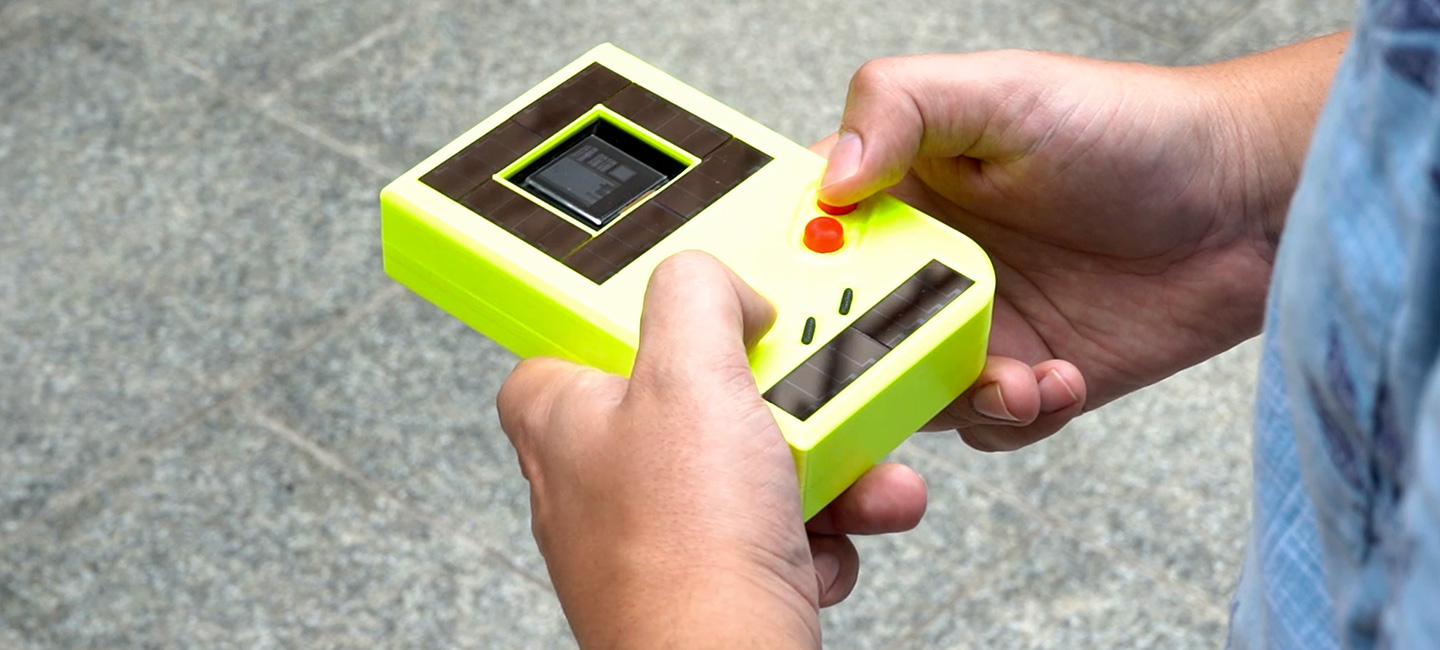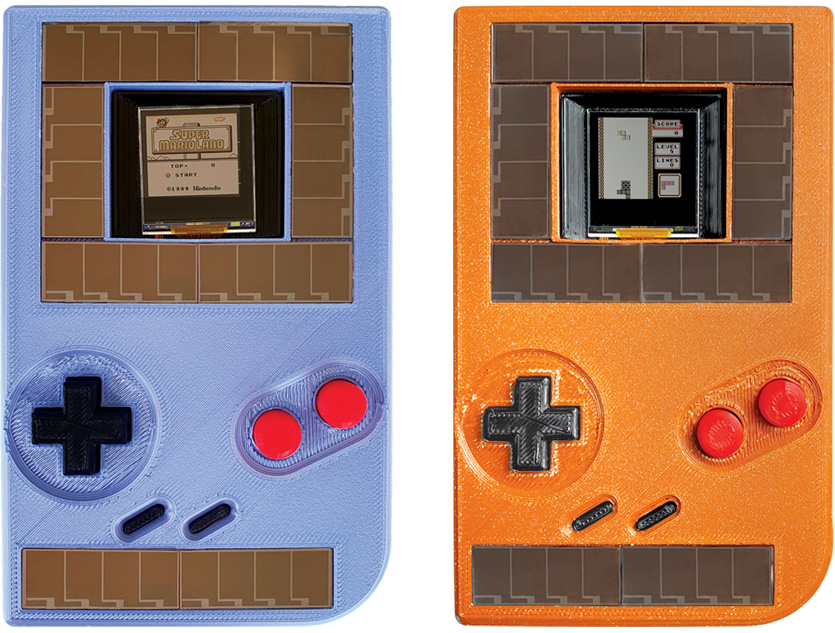A Future Played without Batteries
Professor Josiah Hester is bringing attention to climate change through the power of video games. Battery-free power, that is.

 Northwestern Engineering’s Josiah Hester is bringing attention to climate change through the power of video games. Battery-free power, that is.
Northwestern Engineering’s Josiah Hester is bringing attention to climate change through the power of video games. Battery-free power, that is.
Hester has developed the first mobile video game console that operates without battery power. Called Engage, the device looks and performs just like the original 8-bit Nintendo Game Boy yet relies on sustainable energy sources.
“We wanted to show what’s possible with a more ecologically friendly model of computation,” says Hester, assistant professor of electrical and computer engineering and of computer science at the McCormick School of Engineering. “The device presents an opportunity to have a conversation about climate change and the effect our devices have on electronic waste.”
A familiar look
While replicating the original 1989 Game Boy in both form and function, Engage’s hardware and software, developed in collaboration with researchers from Delft University of Technology in the Netherlands, represent the latest advances in intermittent computing. The console is part of a new class of small, inexpensive devices that rely on natural sources of energy to provide power only when needed.
We wanted to show what’s possible with a more ecologically friendly model of computation. The device presents an opportunity to have a conversation about climate change and the effect our devices have on electronic waste. Assistant Professor, Electrical and Computer Engineering and Computer Science
Small solar panels affixed to the console’s front shell power gameplay, while button pressing harvests additional energy. Because the device is intermittently powered, power failures are common. To address this, Engage’s non-volatile memory lets users return to the exact moment in the game where they left off after power returns.
The hand-held system has nostalgic appeal—the device can play any game from Space Invaders to Tetris to Super Mario Land using an original Game Boy cartridge—while serving as a valuable proof of concept for sustainable computing.
“Batteries are expensive, bulky, and degrade over time,” Hester says. “We can harvest the energy we need when we need it. We don’t have to store it in little chemical factories.”

A battery-free, programmable future
A Native Hawaiian, Hester finds motivation for his research approach in his ancestors’ connection to ecology and sustainability. In developing his computational devices using intermittent power, he hopes to create technology that lasts lifetimes. He says Engage represents an inflection point in that work of developing sustainable computational devices that show promise to positively impact the planet.
“Climate change is such an important and pressing problem,” he says. “We need to think outside the box, get a little radical on the technical side, to come up with solutions that at least mitigate its effects, if not reverse them.”
Hester’s Ka Moamoa Lab has developed a suite of battery-free technology that includes National Science Foundation-funded projects like sensors for smart face masks and PPE and soil-powered sensors that will monitor future ecologically minded smart cities.
Long-term, his lab aims to make all of his devices not only battery-free, but also programmable.
“There will soon be a trillion devices in the world, and we are connected to thousands of them every day. To have them function properly, we need to be able to control them and define what we want them to do,” Hester says.
“We’re showing it’s possible. Democratizing access to smart devices in a sustainable way is really where this is going.”
